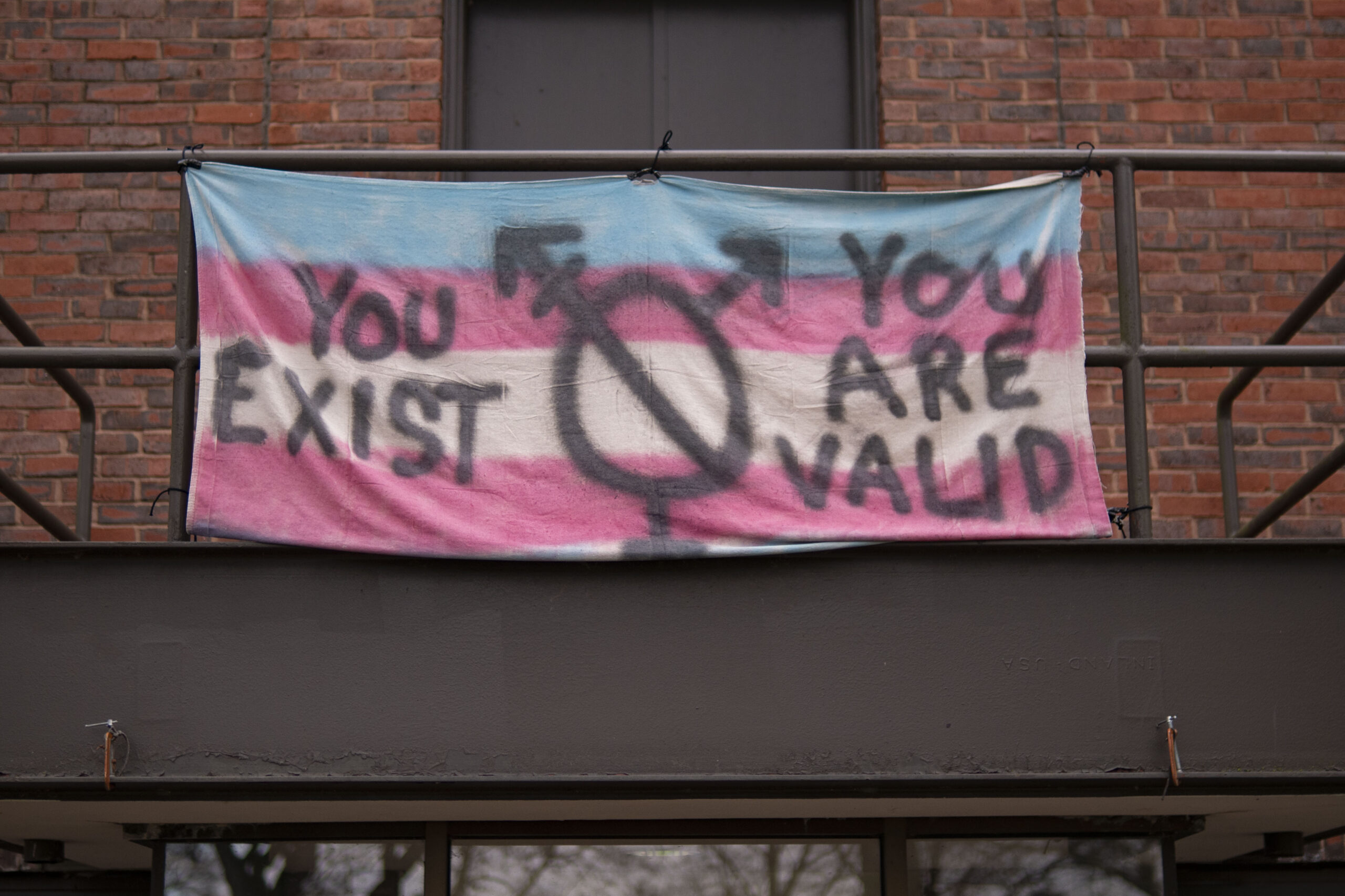Advocates hosted a vigil at Schrock Plaza on Sunday, Nov. 20, in observance of the annual Transgender Day of Remembrance. Advocates is a Goshen College club whose mission is to educate and promote communication between LGBTQ and straight students, faculty and communities on campus.
At the vigil, names of trans people murdered this year were read following a moment of silence. There was also a discussion on the importance of the day of remembrance. A prayer concluded the event.Advocates leader, Aiden Schloneger, a junior environmental science major, expressed his disappointment at the lack of attendance: “We did not get as many people as we expected Sunday. The crowd was the Advocates leaders [and adviser], two students … and one faculty member.”
Schloneger added, “This was disheartening, especially after hearing about the shooting of the day before. This year, like the years before, was a deadly one for trans people.”
A mass shooting took place at Club Q, an LGBTQ nightclub in Colorado Springs, Colorado, on Nov. 19–20. 25 individuals were hurt, 19 by gunshot, and five were killed.
Schloneger said although he was “quite upset” to hear about the shooting, “it wasn’t surprising,” especially considering some of the recent conservative-leaning legislation that has been proposed.
He explained that this year “there have been any anti-trans and anti-LGBT laws coming out” like the Don’t Say Gay bill and “laws bannings trans kids from ports and gender-affirming healthcare.”
“These bills and shootings are a direct result of the media fear-mongering queer folks,” Schloneger said.
Despite one’s personal beliefs, he emphasized the importance of respect.
“The fight for LGBTQ rights is about basic human rights. Everyone deserves the right to safely walk down the street, go to the bathroom, marry who they want, go to school and exist in their own homes,” said Schlonenger.
“Supporting trans people and the broader queer community is about supporting basic human rights and respect.”
Schlonenger cited some statistics: “327 trans people were murdered worldwide this year. 35% were murdered on the streets and 27% of that number were murdered in their own home.”
In terms of things at GC, the institution has made progress in becoming more LGBTQ-inclusive in recent years, including implementations of gender-neutral bathrooms and gender-inclusive housing.
However, as Schloneger notes, most changes have come because of student advocacy.
“GC definitely needs to do better at recognizing themselves how to make the campus more welcoming for queer students. It shouldn’t always have to be students doing the education.”
“GC, in general, needs to have more policies that include and protect queer student rights,” he said.
Schloneger even offered action steps for the institution: “A great first step would be having mandatory SafeZone trainings for all faculty, staff and students. SafeZone trainings educate and teach people how to interact with respect towards LGBTQ individuals and, in turn, will make campus a much safer place for queer people.”
“It should not be up only to queer people to advocate for ourselves. The LGBTQ community needs the support of allies to get things done. A great way to show allyship is through supporting the work Advocates does. But historically, Advocates does not have very, if any, active members. Educating yourself, attending protests, and writing letters to your state representatives is also a great way to support the LGBTQ community.”



